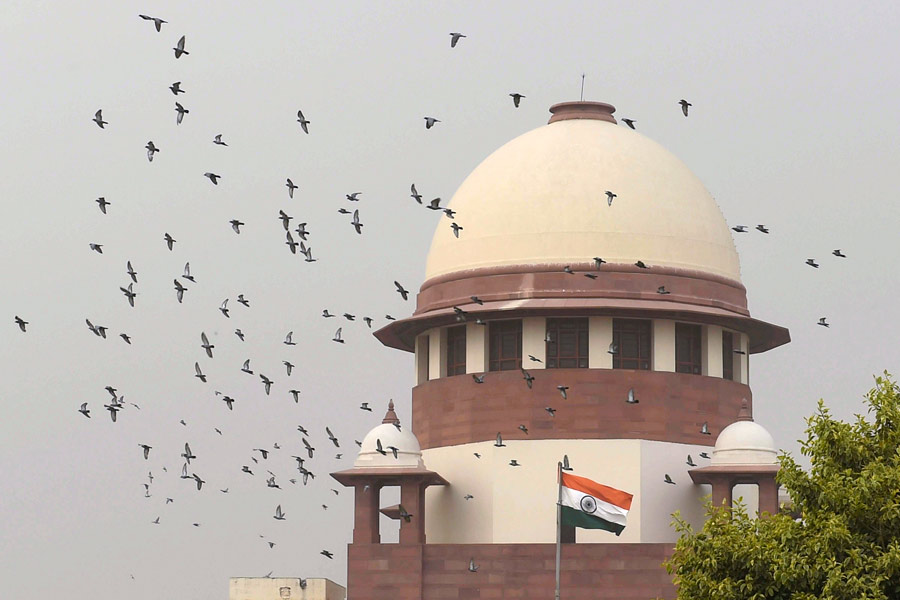The railways must compensate the family of a passenger who has fallen to his or her death from a moving train even if the claimant has failed to furnish the ticket, the Supreme Court has ruled.
All that the claimant needs to do is file a formal affidavit stating the facts, and the burden of proof will shift to the railways, the bench of Chief Justice D.Y. Chandrachud, Justice J.B. Pardiwala and Justice Manoj Misra said.
The verdict came on an appeal by Doli Rani Saha against the concurrent rulings of the Railways Claims Tribunal and Gauhati High Court that dismissed her plea for compensation over the death of her brother.
Swapan Kumar Saha had suffered a fatal fall from a moving Kanchenjunga Express at Dolma Gate on September 5, 2003.
The tribunal ruled there was no evidence that Swapan died as a result of the fall; it also underlined the family’s failure to furnish a railway ticket to prove he was on that train. It later dismissed a review application on the ground that no new facts had been placed on record.
The high court dismissed the appeal on January 7, 2014.
The apex court referred to its 2019 “Rina Devi” judgment that had considered the question: On which party doesthe burden of proof lie whena body is found on railway premises?
That judgment held that the initial burden would be on the claimant, which could be discharged by filing an affidavit on the relevant facts. Once the claimant had done so,the burden would shift to the railways.
It also held that the mere absence of a ticket would not negate the claim that thedeceased was a bona fidepassenger.
“In the present case, the appellant had duly filed an affidavit stating the facts and adverting to the (police) report… which showed that the deceased was travelling on the train and that his death was caused by a fall during the course of his travel,” the bench headed by Justice Chandrachud said.
“The burden of proof then shifted to the railways, which has not discharged its burden. Therefore, the presumption that the deceased was a bona fide passenger on the train in question was not rebutted.”
In 2003, the compensation payable for the death of a passenger was ₹4 lakh, a sum that has currently risen to ₹8 lakh.
The apex court asked the railways to pay the appellant ₹8 lakh by September 30, failing which interest would have to be paid at 6 per cent a year from the date of the verdict.











